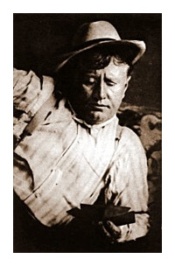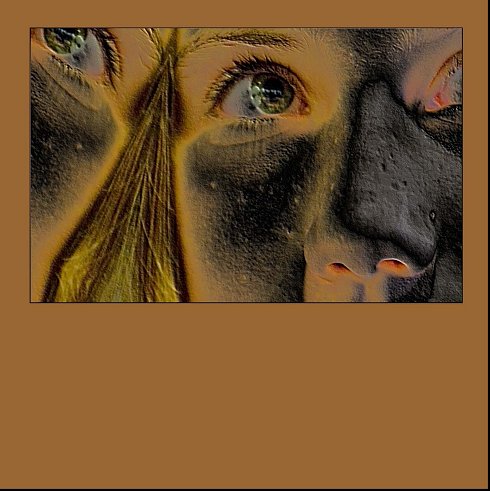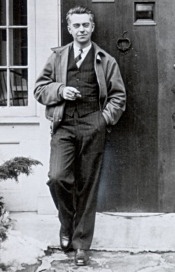Fleurs du Mal Magazine


 The Head-Hunter
The Head-Hunter
by O. Henry
When the war between Spain and George Dewey was over, I went to the Philippine Islands. There I remained as bush-whacker correspondent for my paper until its managing editor notified me that an eight-hundred-word cablegram describing the grief of a pet carabao over the death of an infant Moro was not considered by the office to be war news. So I resigned, and came home.
On board the trading-vessel that brought me back I pondered much upon the strange things I had sensed in the weird archipelago of the yellow-brown people. The manœuvres and skirmishings of the petty war interested me not: I was spell-bound by the outlandish and unreadable countenance of that race that had turned its expressionless gaze upon us out of an unguessable past.
Particularly during my stay in Mindanao had I been fascinated and attracted by that delightfully original tribe of heathen known as the head-hunters. Those grim, flinty, relentless little men, never seen, but chilling the warmest noonday by the subtle terror of their concealed presence, paralleling the trail of their prey through unmapped forests, across perilous mountain-tops, adown bottomless chasms, into uninhabitable jungles, always near with the invisible hand of death uplifted, betraying their pursuit only by such signs as a beast or a bird or a gliding serpent might make—a twig crackling in the awful sweat- soaked night, a drench of dew showering from the screening foliage of a giant tree, a whisper at even from the rushes of a water-level—a hint of death for every mile and every hour—they amused me greatly, those little fellows of one idea.
When you think of it, their method is beautifully and almost hilariously effective and simple.
You have your hut in which you live and carry out the destiny that was decreed for you. Spiked to the jamb of your bamboo doorway is a basket made of green withies, plaited. From time to time as vanity or ennui or love or jealousy or ambition may move you, you creep forth with your snickersnee and take up the silent trail. Back from it you come, triumphant, bearing the severed, gory head of your victim, which you deposit with pardonable pride in the basket at the side of your door. It may be the head of your enemy, your friend, or a stranger, according as competition, jealousy, or simple sportiveness has been your incentive to labour.
In any case, your reward is certain. The village men, in passing, stop to congratulate you, as your neighbour on weaker planes of life stops to admire and praise the begonias in your front yard. Your particular brown maid lingers, with fluttering bosom, casting soft tiger’s eyes at the evidence of your love for her. You chew betel-nut and listen, content, to the intermittent soft drip from the ends of the severed neck arteries. And you show your teeth and grunt like a water-buffalo—which is as near as you can come to laughing—at the thought that the cold, acephalous body of your door ornament is being spotted by wheeling vultures in the Mindanaoan wilds.
Truly, the life of the merry head-hunter captivated me. He had reduced art and philosophy to a simple code. To take your adversary’s head, to basket it at the portal of your castle, to see it lying there, a dead thing, with its cunning and stratagems and power gone—Is there a better way to foil his plots, to refute his arguments, to establish your superiority over his skill and wisdom?
The ship that brought me home was captained by an erratic Swede, who changed his course and deposited me, with genuine compassion, in a small town on the Pacific coast of one of the Central American republics, a few hundred miles south of the port to which he had engaged to convey me. But I was wearied of movement and exotic fancies; so I leaped contentedly upon the firm sands of the village of Mojada, telling myself I should be sure to find there the rest that I craved. After all, far better to linger there (I thought), lulled by the sedative plash of the waves and the rustling of palm-fronds, than to sit upon the horsehair sofa of my parental home in the East, and there, cast down by currant wine and cake, and scourged by fatuous relatives, drivel into the ears of gaping neighbours sad stories of the death of colonial governors.
When I first saw Chloe Greene she was standing, all in white, in the doorway of her father’s tile-roofed dobe house. She was polishing a silver cup with a cloth, and she looked like a pearl laid against black
O. Henry
(1862 – 1910)
The Head-Hunter
fleursdumal.nl magazine
More in: Archive G-H, Henry, O.

A case of identity:
Lolita
jef van kempen 2010
fleursdumal.nl magazine
More in: Jef van Kempen Photos & Drawings, Photography

Hart Crane
(1889 – 1932)
At Melville’s Tomb
Often beneath the wave, wide from this ledge
The dice of drowned men’s bones he saw bequeath
An embassy. Their numbers as he watched,
Beat on the dusty shore and were obscured.
And wrecks passed without sound of bells,
The calyx of death’s bounty giving back
A scattered chapter, livid hieroglyph,
The portent wound in corridors of shells.
Then in the circuit calm of one vast coil,
Its lashings charmed and malice reconciled,
Frosted eyes there were that lifted altars;
And silent answers crept across the stars.
Compass, quadrant and sextant contrive
No farther tides . . . High in the azure steeps
Monody shall not wake the mariner.
This fabulous shadow only the sea keeps.
Hart Crane poetry
fleursdumal.nl magazine
More in: Archive C-D, Crane, Hart, Herman Melville
Thank you for reading Fleurs du Mal - magazine for art & literature